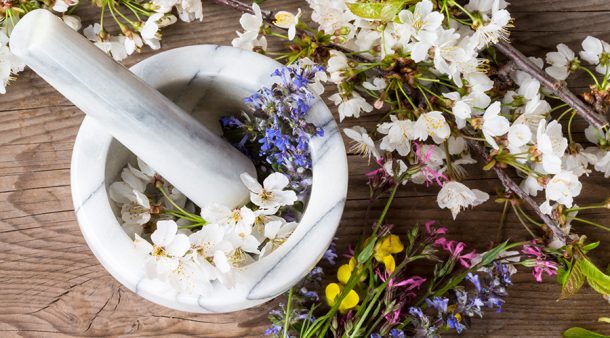
Perennial Allergic Rhinitis: Causes, Symptoms, and Natural Remedies
For millions of Americans, the changing seasons can trigger allergy symptoms. Spring’s pollens, summer’s dust, and fall’s rotting leaves and molds often lead to perennial allergic rhinitis. This condition is an inflammatory disorder affecting the nasal passages, involving an IgE-mediated response. Approximately 10-20% of Americans suffer from this condition, which can result from environmental agents, food sensitivities, metabolic issues, structural abnormalities, or certain drugs. Studies show that people with perennial allergic rhinitis often experience a decline in their physical and mental well-being, which can impact their daily lives.
Symptoms of Perennial Allergic Rhinitis
People with perennial allergic rhinitis often have symptoms like a runny nose, itchy and watery eyes, wheezing, coughing, and congestion. They may also experience sneezing, nasal itching, and rhinorrhea. These symptoms are usually caused by allergens that trigger the release of histamine in the body. While seasonal allergic rhinitis happens at certain times of the year, perennial allergic rhinitis can persist all year. If not managed properly, it can even worsen conditions like asthma.
Common Causes of Perennial Allergic Rhinitis
Many doctors believe food sensitivities are rare causes of rhinitis. However, in perennial allergic rhinitis, triggers like dust, chemicals, pollution, and animal dander are more common. Environmental factors often play a significant role in the condition, activating the immune system and causing symptoms to continue.
Managing Perennial Allergic Rhinitis with Diet
Using the Elimination Diet can help identify and reduce allergens linked to perennial allergic rhinitis. By removing and then slowly reintroducing certain foods, people can find specific dietary triggers that may worsen their symptoms.
Natural Remedies for Perennial Allergic Rhinitis
Vitamin C (Ascorbic Acid): Vitamin C boosts the immune system and has antioxidant properties. It also acts as a natural antihistamine, reducing the release of histamine. Low levels of vitamin C are linked to higher histamine levels, so supplementing with it can help. Take 1,000-3,000 mg daily.
Quercetin: This antioxidant, found in many fruits, vegetables, and herbs, reduces inflammation and prevents histamine release. Quercetin can stabilize cell membranes and reduce symptoms. It is also available as a nasal spray called QC Spray. Take 250-600 mg three times daily, 5-10 minutes before meals.
Methylsulfonylmethane (MSM): MSM is a natural sulfur compound found in many fruits and vegetables. Research shows that taking MSM can reduce allergic symptoms, especially in the upper and lower respiratory systems. Take up to 2,000 mg daily.
Bromelain: Bromelain, an enzyme from pineapples, has mucolytic and anti-inflammatory properties. It helps clear nasal passages and reduces inflammation, making it effective for respiratory conditions. Take 500 mg three to four times daily.
Grapeseed Extract: This powerful antioxidant helps the body absorb vitamin C and quercetin. Grapeseed extract also blocks histamines and can reduce symptoms from both airborne and food allergens. You can also find grapeseed oil in Maggie’s Balm CBD product.
Stinging Nettle: The leaves of stinging nettle contain compounds that work similarly to antihistamines. This herb can reduce symptoms of perennial allergic rhinitis. Take 300 mg daily of freeze-dried stinging nettles on an empty stomach.
N-Acetylcysteine (NAC): NAC is a natural amino acid derivative that detoxifies the body and protects cells. It acts as a mucolytic agent, clearing nasal passages and reducing symptoms. Take 500 mg twice daily.
Perilla Seed Extract: Perilla seed extract offers relief from allergic symptoms and may work as well as prescription antihistamines without side effects. It helps regulate the immune response and controls histamine levels. Take 100 mg once or twice daily.
Butterbur Extract: Butterbur extract can be as effective as some antihistamines, such as Claritin, in managing symptoms. Follow the dosage instructions on the packaging.
Conventional Treatments and Their Limitations
Most people use prescription medications like Claritin, Zyrtec, and Allegra or over-the-counter products like Benadryl to manage perennial allergic rhinitis. While these antihistamines can provide quick relief, they often come with side effects like drowsiness and dry mouth. For severe cases, doctors may prescribe decongestants or corticosteroids. However, these options are usually for short-term relief and may not be suitable for long-term use.
Conclusion
Perennial allergic rhinitis affects many people and can impact their quality of life. Although conventional treatments can offer temporary relief, they often have unwanted side effects. By adopting a holistic approach that includes dietary changes, natural supplements, and lifestyle modifications, people can effectively manage their symptoms. Addressing the root causes, such as allergens, diet, and environmental factors, can lead to a healthier life with fewer allergy issues.


